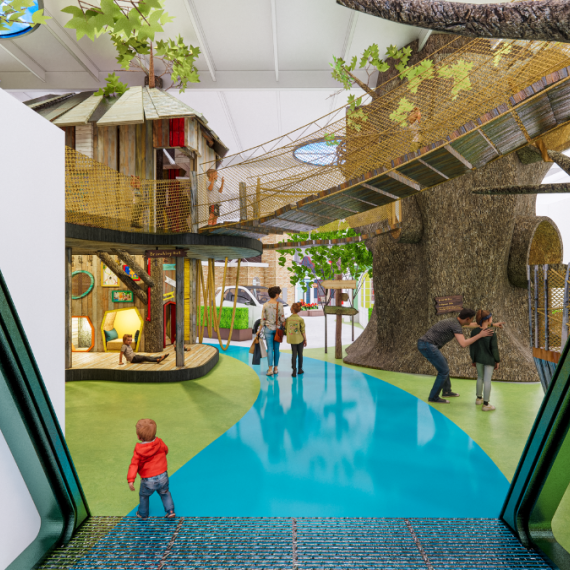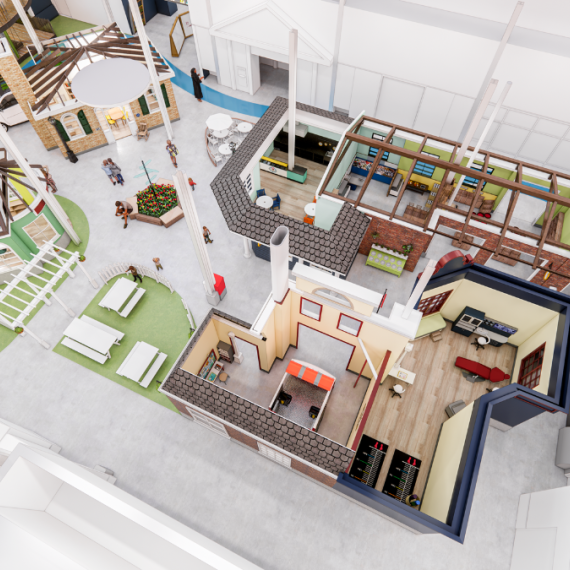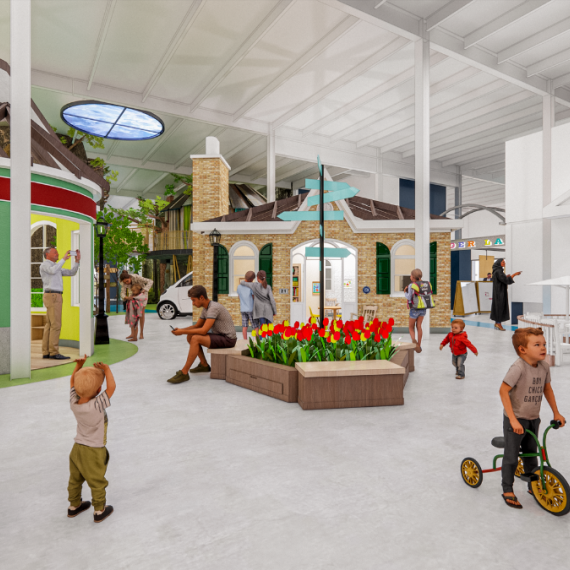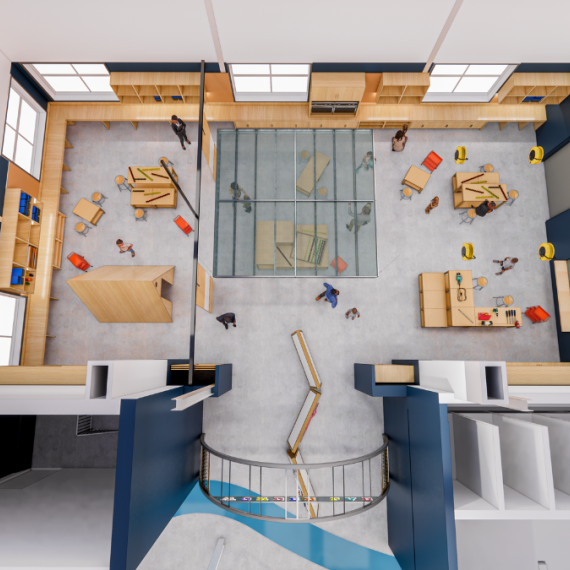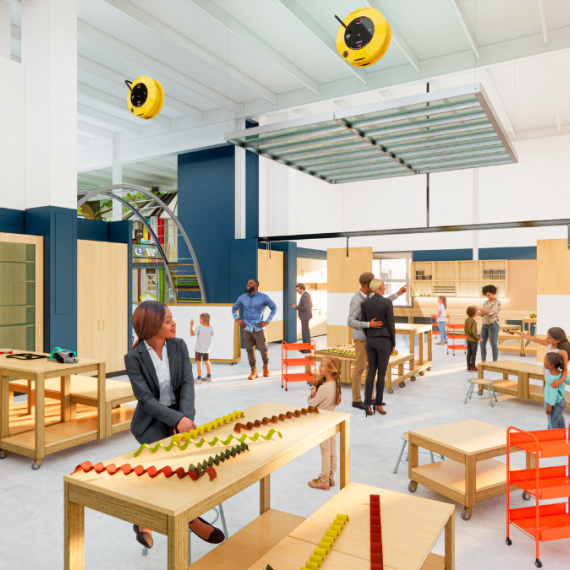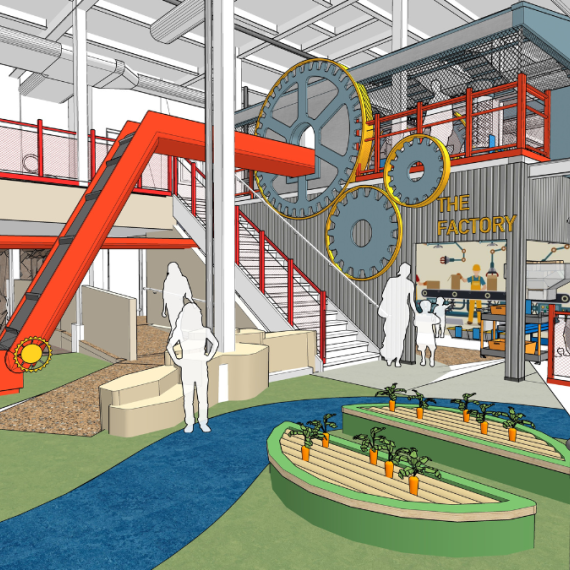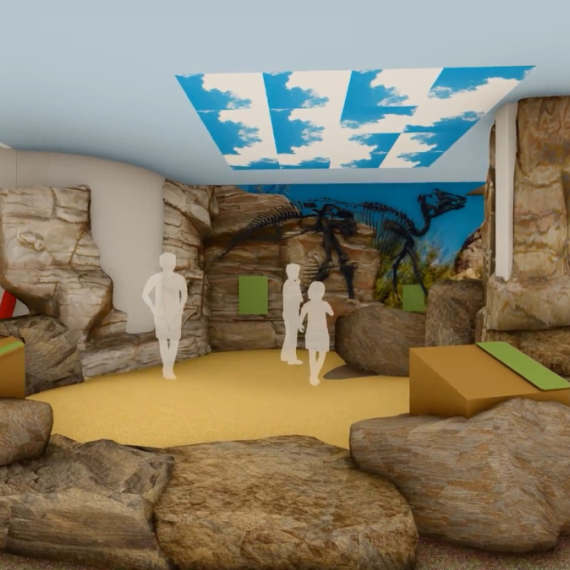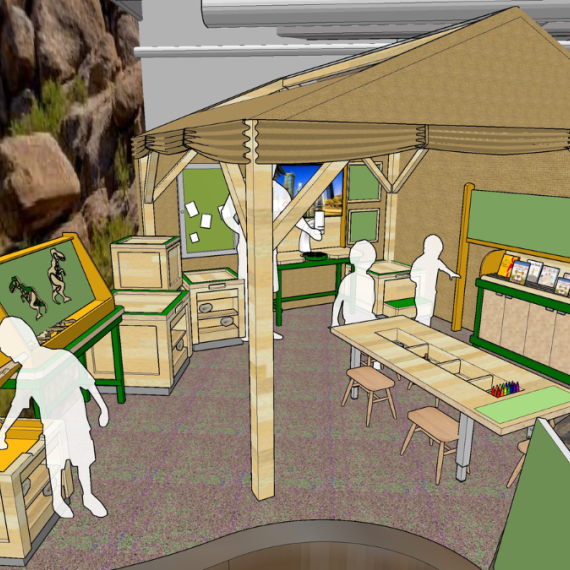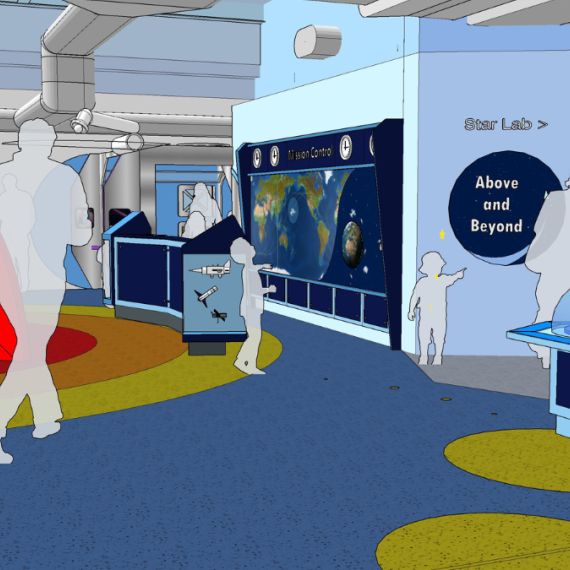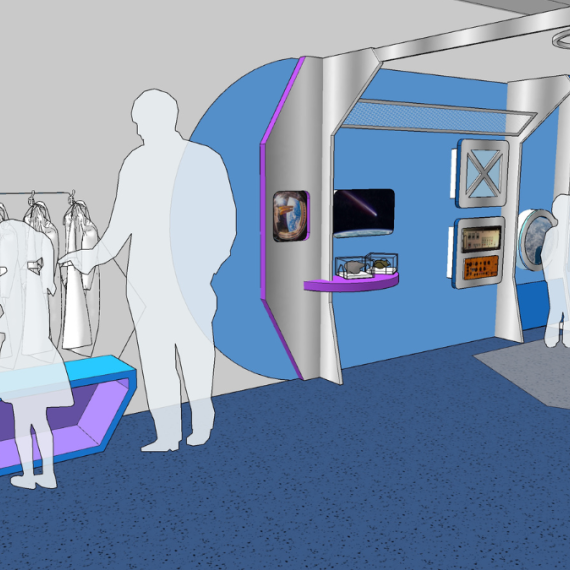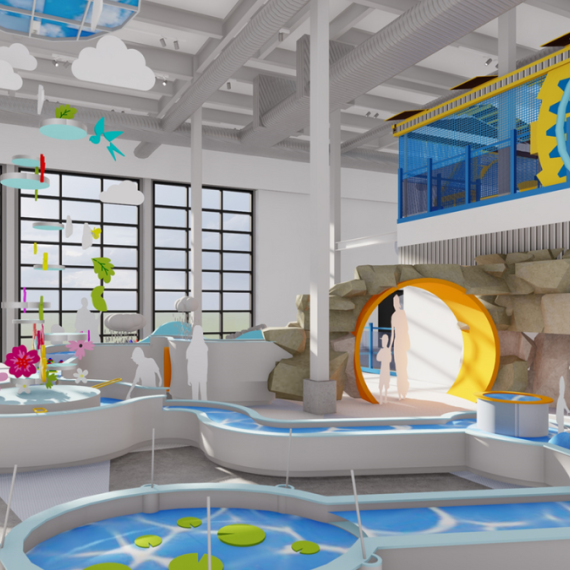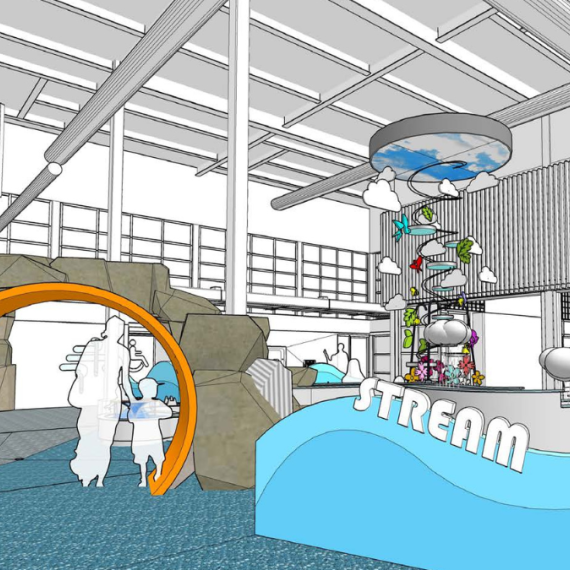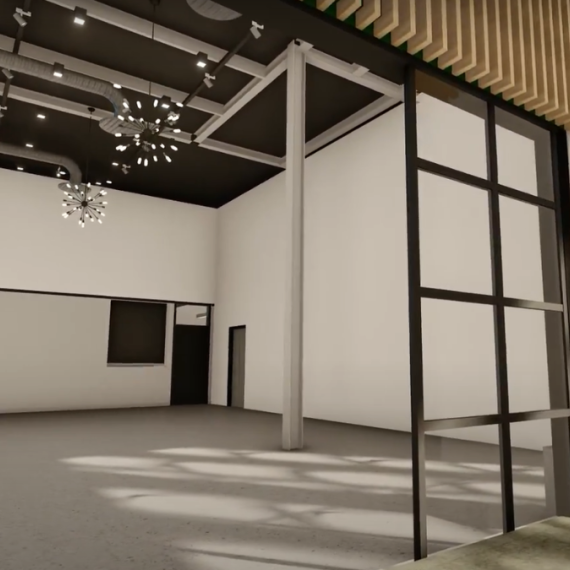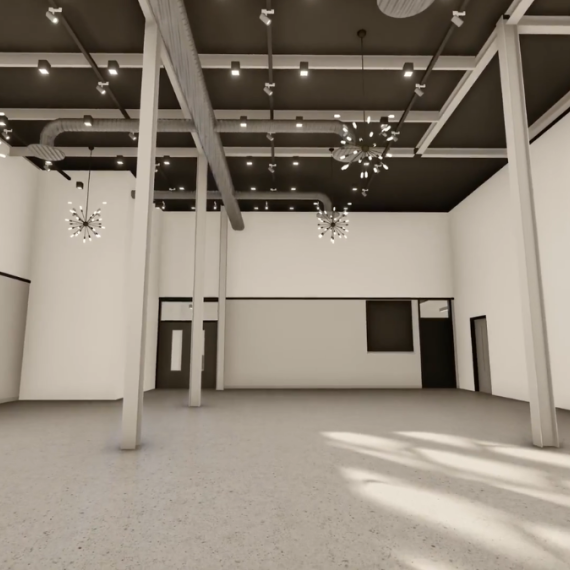Founded as the first children's museum in Canada in 1975, the spirit of learning and play has always found a home with us.
For over four decades, our beloved former home at 21 Wharncliffe Rd. S. served as a place of wonder, learning, and joy for countless children and their loved ones. As the community around us grew, we knew it was time for us to start our biggest journey yet: Our Journey Home.
Our New Home
Thanks to the support of our community, on January 25th, 2025 we hosted our Grand Opening Celebration and officially opened to doors to our new home at 100 Kellogg Lane!
Designed with the input from over 500 children, families, and community members from the floor plan to the exhibit themes, the new London Children's Museum is designed for children, by children. Our new home is 36,000 square feet on the fourth floor of London's historic Kellogg’s factory. Centrally located and easily accessible, this new space will provide millions of children and families with more interactive play, innovative exhibits, and shared spaces where they can learn and grow for years to come.
Together with the support of our community we’ve built more than a museum—we’ve built a home that honors the voices of children, celebrates the power of play, and fosters a lifelong love of learning.
Continuing The Journey
The capital campaign for the new London Children's Museum has raised $20.7 million for this $23 million project. The support of our generous donors has made opening the doors to this groundbreaking new facility possible. We're so close to the finish line, but we need your help closing the gap.
By making a gift today, you are joining a community of donors who have walked alongside us during this historic project. Your support will help provide generations of children with hands-on learning opportunities that support their healthy social, emotional, cognitive, and physical growth. You can be a part of this incredible new space—Every donation is a meaningful step towards the finish line on our journey.
Help us cross the finish line the way we started this journey over 45 years ago: Together.
For more information about ways to Join the Journey, contact:
Kate Ledgley, Executive Director
kate [at] londonchildrensmuseum.ca (kate[at]londonchildrensmuseum[dot]ca)
519.434.5726 ext. 229
Campaign Video
Learn more in our Case for Support
FAQ
- When did the new London Children’s Museum at 100 Kellogg Lane open?
The new London Children's Museum at 100 Kellogg Lane hosted it's grand opening on January 25th, 2025
- Why did the London Children's Museum move?
After more than 40 years in the same space, and with over 3 million visitors, the beloved building on Wharncliffe Road has seen a lot of play.
The age, structure, and maintenance needs of the building have imposed limitations on new exhibits and programs. The current space inhibits our ability to create new, dynamic content that aligns with the needs and interests of today’s children and families.
While the essence of the London Children’s Museum will remain the same, our new home at 100 Kellogg is essential to meeting our growing attendance and demand. In the five years prior to the COVID-19 pandemic, London Children’s Museum attendance grew 26%. With over 36,000 sq ft of open concept space, the new London Children’s Museum at 100 Kellogg will nearly double exhibit square footage.
- Why is the London Children’s Museum important?
The London Children’s Museum is essential to our community’s cultural, social, educational, and economic landscape. As one of only nine children’s museums in Canada, we are a defining feature of this city. Incorporated in 1977, the London Children’s Museum is tightly woven into the memories of millions of children throughout the region.
Through hands-on learning experiences, the London Children's Museum:
- Encourages children’s healthy social, emotional, cognitive and physical growth
- Nurtures curiosity, creativity, experimentation, and innovation
- Promotes critical thinking and problem-solving
- Cultivates interest in science, technology, art, history, culture, and nature
- Offers a safe and welcoming environment for all children and families
- Encourages friends, families, and community members to learn alongside one another
- How much did this project cost? What is your fundraising goal?
The new London Children’s Museum is a $23 million project.
To date, we have secured $20.7 million. The pandemic caused a significant increase to this budget due to the global increases in the cost of supplies and supply chain issues.
- How can I donate to the new London Children’s Museum?
Donations from individuals, corporations, and foundations are crucial to ensuring the London Children's Museum continues to provide a safe, engaging, and educational environment for children to learn.
Ways to Give:
- Online
- Cheques, made payable to the London Regional Children's Museum, can be mailed to: London Children's Museum, 100 Kellogg Lane Suite 401, London ON, N5W 0B4
- To explore other gift options, including exhibit naming opportunities, contact Jackie Ellefsen, Director of Development, christine [at] londonchildrensmuseum.ca (jellefsen[at]londonchildrensmuseum[dot]ca), or 519.434.5726 ext. 227
Every donation helps ensure the London Children's Museum continues to inspire creativity and curiosity for years to come.
This project is funded in part by the City of London, Ontario Trillium Foundation, Government of Canada through the Department of Canadian Heritage, Government of Canada Museums Assistance Program, Government of Canada through the Federal Economic Development Agency for Southern Ontario (FedDev Ontario), and Canadian Space Agency.

